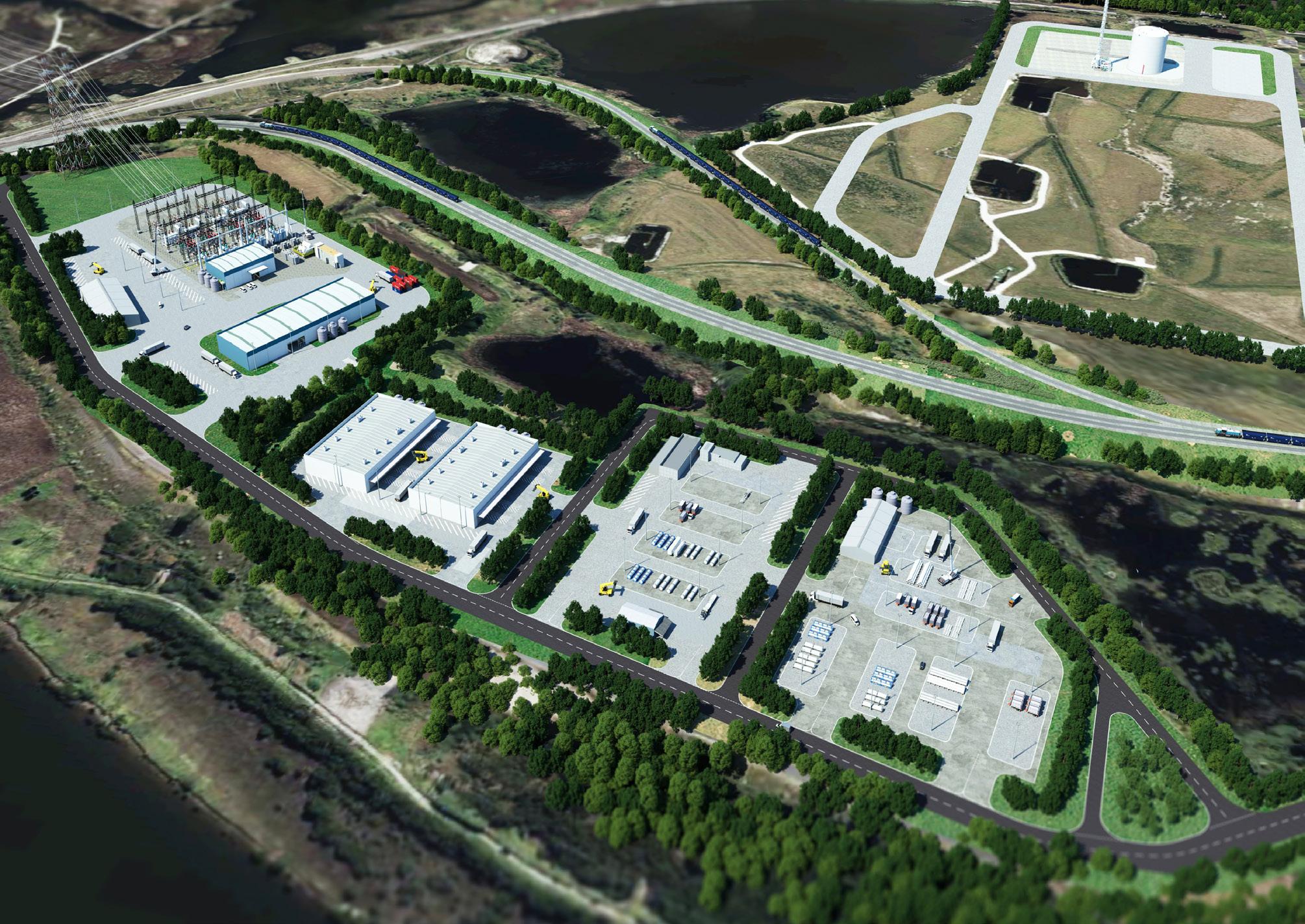
3 minute read
The Port of Newcastle Goes Green
Port of Newcastle is diversifying for the future
Port of Newcastle has consistently demonstrated sustainable leadership within its sector by commitment to an Environmental, Social, Governance (ESG) strategy and master plan that underpin their sustainability journey. Their commitment to sustainability is strengthened through support of the sustainable development goals (SDGs).
Port of Newcastle was the first Australian port to be certified as environmentally sustainable by Lloyds through the International EcoPorts Network, which ensures the port provides robust governance around their environmental management. They have achieved 5-star ratings in GRESB ESG benchmarking for the past three years, increasing from a score of 45 in 2019 to a score of 95 in 2022.
Sustainability is embedded into Port of Newcastle's organisation through their sustainable finance framework which sets out key performance indicators aimed at improving ESG issues. Linking staff short-term incentive payments to these sustainable finance KPIs ensures that accountability is instilled across the organisation.
Port of Newcastle has invested time in understanding their emissions profile to enable the identification of opportunities for improvement and demonstrate performance. Aligned with a commitment to the Paris Agreement, they have undertaken a series of strategic decarbonisation initiatives across the business. In 2022, they were approved for a Science Based Target Initiative 1.5-degree scenario Scope 1 and 2 emissions reduction. This will result in an emissions reduction of 55% by 2030 from a 2018 baseline. They also completed the measurement of our Scope 3 baseline emissions (2018) and are publicly committed to reducing these emissions each year in line with the SBTI trajectory.

Port of Newcastle has set a net-zero 2040 target supported by a net-zero business plan which was approved by the Board in 2022. Considerable emissions reductions have been realised by entering into a renewable purchase power agreement within our three embedded networks. Furthermore, the port has ensured all other purchased electricity was renewably sourced by purchasing and surrendering large-scale generation certificates for all smaller sites outside of the embedded network. This resulted in a reduction of all Scope 2 emissions in 2022 and has also reduced Scope 3 emissions through our downstream leased tenants' electricity usage. They have also improved their energy efficiency through a port-wide LED lighting upgrade which was completed in 2023.
Port of Newcastle’s clean energy precinct is a landmark precinct project enabling a new, scalable economy, positioning the Hunter Region as a global, diversified clean energy gateway and a catalyst for economic growth, job opportunities and innovative career pathways. This project addresses four priority SDGS: SDG 7 (Affordable and Clean Energy), SDG 8 (Decent work and economic growth), SDG 9 (Industry, innovation and infrastructure) and SDG 13 (Climate Action). Embodying our commitment to shared progress and SDG 17 (Partnerships for the goals), Port of Newcastle continues to form collaborative partnerships with tenants and wider port community to foster innovative energy efficiency initiatives and provide leadership within this space. This united effort is vital for realising energy transformation and decarbonisation goals across the Hunter region.
In summary, Port of Newcastle’s dedication to sustainable leadership is across every aspect of our organisation. Through strategic governance, innovative initiatives, collaborative partnerships and our commitment to the sustainable development goals, they have forged a path toward a more sustainable future that resonates within they organisation and in the broader community they serve.
In 2023, Port of Newcastle won the NSW Sustainability Award for Large Business Sustainable Leadership.
portofnewcastle.com.au/








